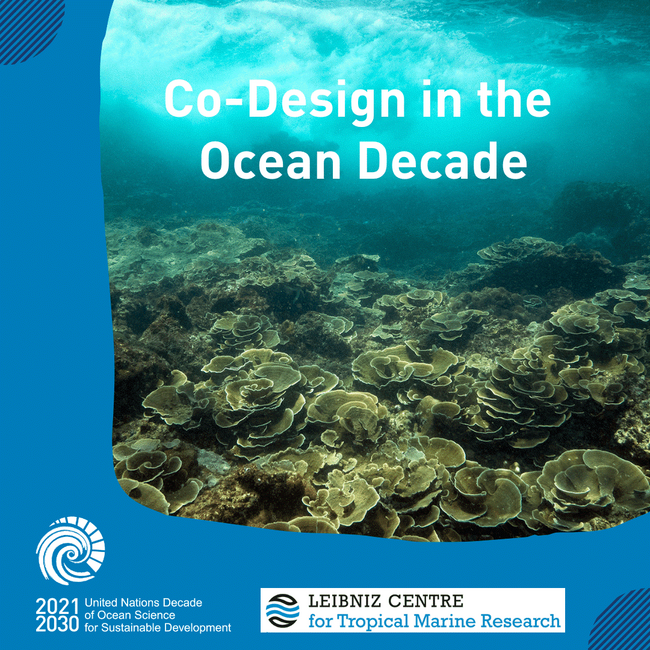24/06/2024 | Despite the recognition of capacity development as crucial for achieving the goals of the UN Decade of Ocean Science for Sustainable Development 2021-2030 (‘Ocean Decade’), there is a significant gap in systematic approaches to enhancing these capacities, particularly through co-design methodologies.
A recent study led by researchers from the ZMT addresses this gap by presenting an in-depth evaluation of the "Co-design for the Ocean Decade" online training course. The results, published in "Frontiers in Ocean Sustainability," are entitled “Co-design capacity development for the UN Ocean Decade”.
This training course was commissioned by UNESCO’s Intergovernmental Oceanographic Commission (UNESCO-IOC) and was piloted in the African region in 2022. The initiative aimed to enhance participants' understanding and skills in co-design methodologies essential for effective stakeholder engagement and sustainable ocean governance.
In their publication, ZMT researchers detail how the training course improved participants' competencies in engaging diverse stakeholders and integrating local and regional contexts into ocean governance. It also highlights the importance of such co-design training in contributing to the objectives of the UN Ocean Decade.
The initiative is now implemented under the umbrella of the Ocean Decade Capacity Development Facility as a broader, open self-paced course to support the needs of Ocean Decade existing and future partners towards successful execution of transformative ocean solutions.
Dr. Jialin Zhang, the project coordinator and lead author of the study, states, “The success of this training course demonstrates the value of co-designed and co-implemented capacity development initiatives. We are pleased to see that the outcomes can be disseminated through this joint publication, showcasing the broader impact of our efforts.”
One of the co-authors, Dr. Tim Jennerjahn adds, "It is gratifying to witness the success of our two-fold strategy to create impacts in the academic world as well in society. On the one hand, it is rewarding to see the societal impact of our capacity development activities. On the other hand, as a research organization, it is crucial for us to provide robust evaluations of such initiatives in the peer-reviewed scientific literature to contribute to the global knowledge base and provide guidance to our peers."
This publication underscores ZMT's commitment to not only implementing effective capacity development programs but also rigorously evaluating and sharing these efforts within the scientific community. By doing so, ZMT enhances its role in fostering sustainable and inclusive ocean governance.
For more details, read the full publication here: Zhang, Jialin, Sebastian C. A. Ferse, Tim C. Jennerjahn, Alison Clausen, and Rebecca Lahl. 2024. 'Co-design capacity development for the UN Ocean Decade', Frontiers in Ocean Sustainability, 2: https://www.frontiersin.org/articles/10.3389/focsu.2024.1252087





